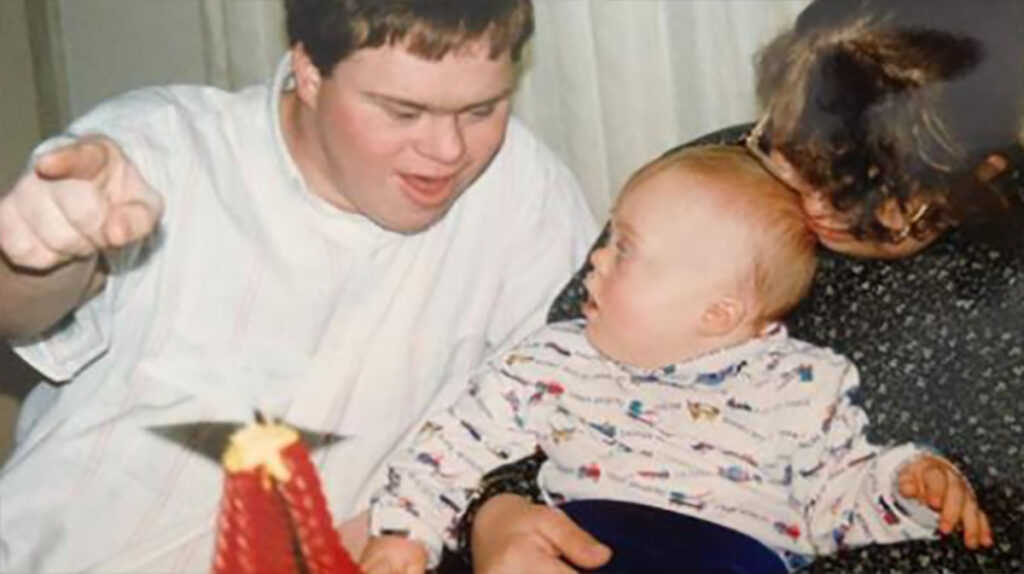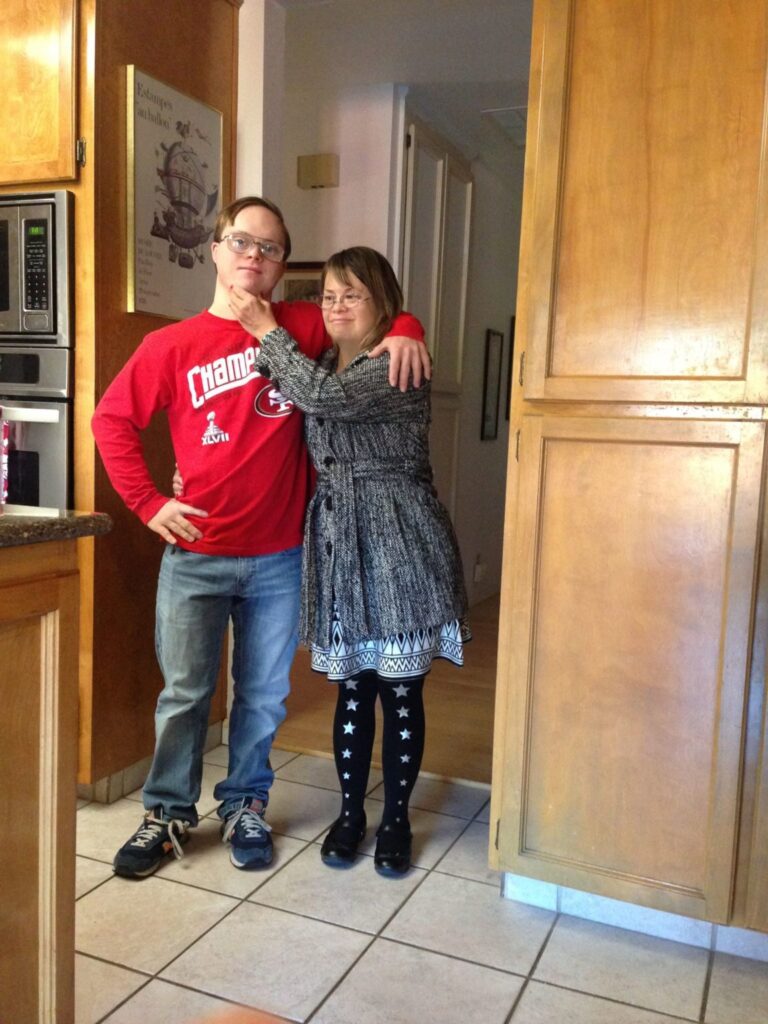Many of us are familiar with the pressure that comes with society’s expectations about starting a family. There’s an unspoken assumption that one should have a stable job, find a partner, get married, and have children. For those who choose not to have kids, the decision often leads to uncomfortable, intrusive questions and unsolicited advice.
These questions can be deeply personal, often crossing boundaries that make the individual feel uneasy, especially when asked why they aren’t planning to become parents. In society’s eyes, opting out of parenthood can sometimes be seen as selfish or self-centered. However, the judgment is even more pronounced when couples who are seen as “different,” such as those with Down syndrome, decide to have children. The moment this happens, the narrative surrounding their choices shifts dramatically.
Over two decades ago, Patti White, a mother from California, received both exciting and concerning news from her daughter, Lisa. Lisa, who has Down syndrome, was pregnant.
Down syndrome is a genetic condition that can cause physical and intellectual disabilities, varying in severity from person to person. What many don’t realize, though, is that many people with Down syndrome are capable of leading independent lives, holding jobs, and managing self-care.
However, the chances of two people with Down syndrome conceiving a child are much lower than in other couples, primarily because men with Down syndrome are typically sterile. But life had a different plan for Lisa and her boyfriend, who also had Down syndrome. Their decision to have a baby was met with surprise, but Patti was fully supportive, even though she had reservations.
At the time, Lisa was 29 years old, living independently in her own apartment, and working full-time at a local Goodwill store for over 11 years. Her mother, Patti, described Lisa as a well-liked employee who got along with everyone, excelling at her job (though she wasn’t able to operate the cash register). She was in a committed relationship, and the couple had discussed important matters like birth control and safe sex.
Despite all the medical books suggesting that men with Down syndrome are usually sterile, Lisa became pregnant. Patti’s reaction to the news was a mixture of surprise and confusion, especially when she learned that her daughter’s boyfriend also had Down syndrome. “How could this be? Her boyfriend has Down syndrome!” Patti recalled thinking when she received the voicemail from Lisa announcing the news: “Hi Mum, I just wanted you to know you are going to be a GRANDMOTHER!”
While Lisa’s family offered unwavering support, outsiders were quick to criticize. Some even called Lisa’s decision irresponsible or selfish, questioning her ability to be a good mother. Yet, Lisa remained determined. Despite the criticisms, she had a typical pregnancy experience, attending childbirth classes, hiring a pregnancy coach, and facing the usual challenges—morning sickness, fatigue, and the physical toll of working full-time while carrying a baby.
“It was hard for me to walk around when I was pregnant,” Lisa shared. “I had morning sickness, and I didn’t feel good. I felt like I was going to throw up.”
Despite the societal pressures and the questions about her ability to be a mother, Lisa faced her pregnancy with confidence, backed by the love and support of her family.

However, Lisa’s pregnancy was considered high risk, and it was treated with the utmost caution. Lisa gave birth to her son, Nic, four weeks premature. Just like his parents, Nic was born with Down syndrome.
Nic’s father was present at his birth, and shortly after, Lisa and her partner tried to live together under one roof to raise their son. Sadly, things didn’t work out, and Nic’s father passed away when Nic was just five years old.
Now, at 24 years old, Nic has grown into a handsome young man, and he was raised by the loving hands of both his mother, Lisa, and his grandmother. They couldn’t be prouder of the person he’s become.
Having children is always a leap of faith, a risk for everyone involved. For Lisa, the challenges were even greater, not only due to the typical struggles of parenthood but because of the judgmental opinions of others. Some even went as far as to say that Lisa’s decision to become a mother was irresponsible.
The criticism didn’t stop there. Lisa lost some of her friends as their parents feared that Lisa might influence their daughters to want children too. But in the end, none of these opinions had any bearing on the bond between mother and son.
Nic has continued to thrive in spite of the societal pressures, earning his college degree and holding immense respect and admiration for the two women who raised him. In his own words, Nic reflects on the love and care he received from his mother and grandmother:
“I have two moms. My mom, Lisa, is my greatest future in my life. She gave me life, she gave me love, she gave me birth, and she is always wonderful and beautiful.”
In 2016, Patti shared a heartwarming update on Facebook, accompanied by a picture of her proud daughter and happy grandson, showcasing the love and joy that has blossomed in their family despite the struggles they faced.

“This is my daughter, Lisa, clowning with her son, Nic. They both have Down syndrome. This year is a landmark for all of us. Lisa will turn 50, and Nic will turn 20. As for me, well, I’m older than dirt! But I couldn’t be prouder of us all. Our goal when Lisa became pregnant was for her to have the chance to know and build a relationship with her son. There have been many ups and downs along the way, but after all these years, we can honestly say they’ve overcome the odds and share a tremendous love for each other and their small family unit (Lisa is a single mom),” Patti shared.
This remarkable mother-and-son duo has spent decades showing the world the true value of people with Down syndrome. Their story isn’t just about overcoming challenges—it’s about love, resilience, and the power of family. Patti, Lisa, and Nic’s journey offers valuable insights that can hopefully guide and inspire others facing similar decisions.